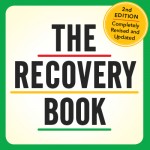People who are new to recovery often find that they have aches and pains they never noticed before. Or they decide that, now that they are sober, it’s time to take care of some nagging health issues.
Like most of us, they turn to the Internet for health information. Problem is, there is a whole lot of bad information out there. Some of it is really bad.
There are also whole lot of bad people who will gladly take your money in exchange for the latest “miracle cure.” Fortunately, there is also a lot of very good—and free—health information online. Below are some guidelines for safe and efficient surfing. (Of course, your own doctor is always your best source of health information, but it’s always good to understand what is going on with your body.)
Practice Smart Searching
Most of us turn to one of the big search engines such as Google to look for health information. But while your search results may contain some very helpful medical news from a prestigious medical association, the very next link could be some sketchy guy who promises to cure your addiction, obesity, erectile dysfunction, or whatever ails you just as soon as you send him some money. And he doesn’t always look obviously sketchy. The search engines are getting better at offering quality information higher up in the search results, but they’re not perfect yet. The good news is there are many sites that offer quality, accurate information that is reviewed by medical professionals and regularly updated.
Start at MedlinePlus
MedlinePlus (http://www.medlineplus.gov) is a site from the U.S. National Institutes of Health, the big federal health agency. It is hands down the best place to start looking for health information.
In the Health Topics area you can look up conditions by body system, types of disorders, age group, gender, and more. Once you find a topic of interest, you’ll see some basic descriptions along with an entire page of well-organized links to more information—overviews, news, diagnosis, treatment, videos and graphics, anatomy, support organizations, current clinical trials, related issues, and more. These links all go to reliable, high-quality sources of information, such as other government agencies, medical societies, medical journals and hospitals. All of the information is vetted by the MedlinePlus staff according to their quality guidelines. In essence, MedlinePlus does your information search for you.
MedlinePlus also has information on prescription and over-the-counter drugs, herbs and supplements, a medical dictionary and encyclopedia, and easy-to-read materials. The MedlinePlus Directories page (http://www.nlm.nih.gov/medlineplus/directories.html) is an extensive list of helpful medical directories from other organizations. These directories can help you find doctors, surgeons, physical therapists, dietitians, medical centers, free clinics, Indian Health Service facilities, and more. (These have not all been vetted, however.)
MedlinePlus also has a page on how to evaluate health information: http://www.nlm.nih.gov/medlineplus/evaluatinghealthinformation.html.
How to Assess Websites
When looking at other websites, how do you know if they are any good? Some things to look for:
- Who sponsors the site? Is there a major institution behind it, such as a university, a hospital, or a government agency? They usually have accurate information. Look for sites that end in .edu (educational), .gov (government), and .org (usually a nonprofit organization). Read the About Us section on the site.
- Does the site have professional medical reviewers or editors? Read what you can about how the site’s information is written and reviewed. Check out the “editorial policy” or “review policy.”
- How often is the information updated? Do the articles have dates on them?
- Be skeptical. Does the site promise a “miracle cure,” or say it has a cure that no one else knows about? Does it claim that “the government doesn’t want you to know” about this cure? It’s probably snake oil. Run far, far away.
Protect Yourself
Online communities (forums, chat rooms, mailing lists, blogs, and so on) where people with a common condition or situation chat and support each other can be very helpful. But tread cautiously. Use them for moral support, a shoulder to lean on. Be very wary of following anyone’s advice too closely, however, and do not rely on people there for any medical advice. Never use your real name in any of these communities. People always seem very nice, but there are some who just troll the forums, looking for people to take advantage of. Never disclose personal information such as your address, social security number, age, or birthday.
You might want to set up a separate Gmail account for your health or recovery-related searches and lists. You can even set up a separate browser identity under that Gmail account, to keep all of your recovery resources separate and private. Also add an ad blocker to your browser.
If you buy anything online, use one charge card just for those purchases. That will make it easier to notice any bogus charges, as well as shut down the card if you have any problems. Don’t click on any emails or links in email that claim to be from your bank or a credit agency. If you get an email that seems legit, go to the bank’s site yourself and log in, completely separate from the email. Or call them.
Next up: Our list of other great online health resources.
See How to Find Good Health Information Online – Part 2. 

Pingback: How to Find Good Health Information Online - 2 | The Recovery Book |